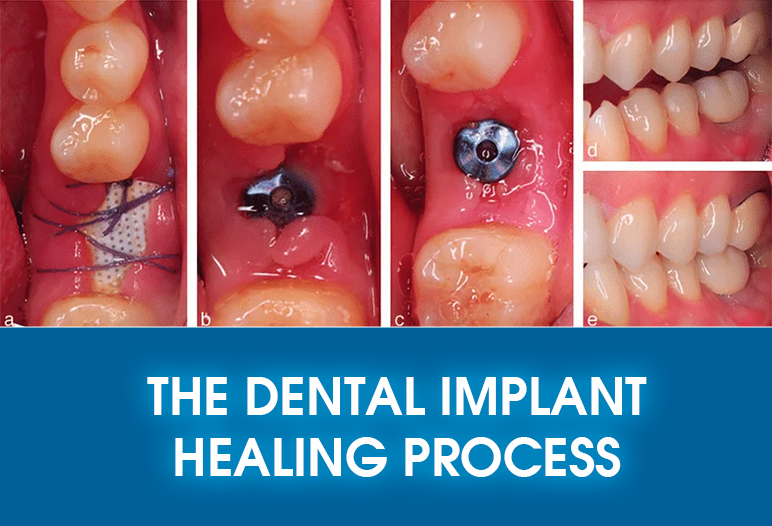
Getting a dental implant is a big step toward a confident smile and better oral health. But once the treatment is complete, the next question that most patients have is: “How long will it take to heal?”
Recovery can feel uncertain, especially if it’s your first time acquiring implants. Fortunately, our skilled dentists in Millwoods are here to assist you as you traverse this chapter of your oral health journey. We’ll ensure you’re comfortable at the clinic and after the surgery concludes. Don’t hesitate to let our team know if you have inquiries or worries.
What to Keep in Mind
Dental treatment doesn’t stop once you leave your dentist’s chair: there’s still the recovery period. Here are some essential things to keep in mind about this stage of your implant journey:
- Healing Time Varies Between Patients
The time it takes to recover after getting dental implants in Millwoods differs for everyone. For some, it’s a short process, while others may need a few more days for things to return to normal.
- Average Healing Timeline: Most patients tend to feel better after a week, but complete healing (where the bone fully fuses with the implant) can take 3 to 6 months.
- What Affects Recovery Time? Factors like age, general health, if you smoke all play a role.
- Multiple Implants or Bone Grafting? If you’ve had more extensive work done, such as requiring a bone or tissue graft before having the implant placed, you can anticipate a longer healing period.
- You Will Feel Some Discomfort but It’s Manageable
We won’t sugarcoat it for you: because the treatment involves drilling a metal post into your jawbone, there will be some discomfort, but this is normal.
- What Sort of Discomfort? You may experience some facial swelling or bruising, mild pain, or tenderness around the treatment site.
- How Long Does It Last? These symptoms are often the worst during the first 48–72 hours after the treatment and will start to fade after.
- Pain Management: Pain medication like Tylenol and Advil are great at managing discomfort, but your dentist may prescribe something stronger, depending on your case.
- Your Diet Needs to Change Temporarily
Right after getting dental implants near you, your mouth will be tender, so it’s highly recommended that your foods that are soft and easy to swallow.
- Soft Foods are Best: Smoothies, yogurt, mashed potatoes, scrambled eggs, and soup (not too hot!).
- Avoid: Crunchy, spicy, sticky, and hard foods until your dentist gives you the go-ahead.
- Stay Hydrated: Drink plenty of water, but don’t use a straw, as sucking can disrupt blood clots.
- Oral Hygiene is Important During Recovery
You might feel hesitant about brushing close to the implant site but keeping your oral cavity clean will help you avoid infection and other preventable problems.
- Brush Gently: Get a toothbrush with soft bristles and be extra gentle around the implant when brushing.
- Rinse with Saltwater: This helps reduce bacteria and soothe the area.
- Some Swelling and Bruising is Normal
If your face looks a bit puffier than usual following your treatment, don’t worry! This is common and it is a normal occurrence.
- Swelling Timeline: Expect swelling for the first 2–3 days; it will start to go down around day 4 or 5.
- Bruising: They can appear on your cheeks or jawline, especially if your surgery was more invasive.
- Use Ice Packs: Applying a cold pack to the side of your face that had surgery for the first 24 hours can lessen any swelling and ease discomfort.
- Rest Makes a Difference
No one enjoys the downtime required after dental surgery, especially since our work and personal schedules can be busy. But it’s crucial you let your body recover.
- Take It Easy: Don’t engage in physical activity for approximately 48–72 hours.
- Sleep with Your Head Elevated: This promotes blood circulation which helps speed up healing.
- You’ll Have Follow-Up Appointments
The healing phase after getting dental implants isn’t something you have to do all by yourself. Our dentists near you will have you come in so they can check your progress.
- What Happens at Follow-Us? The dentist will examine the implant site, take X-rays if needed, and make sure your jawbone has fused with the implant.
- Don’t Skip Them! These visits are crucial for catching issues early and making sure your treatment is successful.
Set Up a Consultation Today
With some patience, adhering to post-treatment guidelines, and a little help from your dental team, you’ll be well on your way to flashing a brand-new smile.
Here at Agape Dental, we are proud to offer restorative services for patients looking to repair their smiles and achieve lasting results. If you’re interested in learning about dental implants or you’re wondering if you’re a good candidate for this process, schedule a consultation with one of our dentists near you today! We look forward to meeting you and assisting you with your smile!

